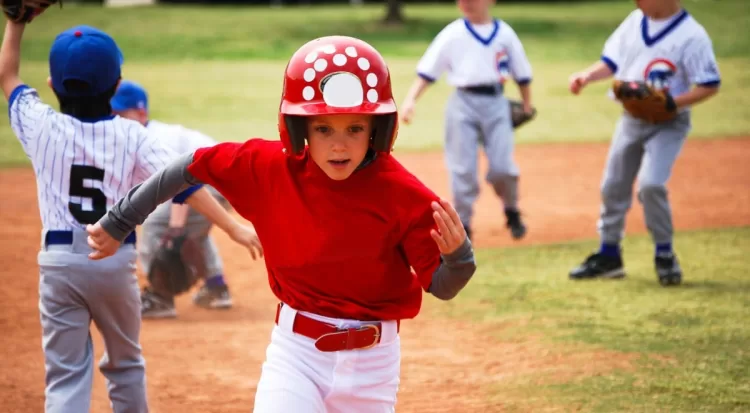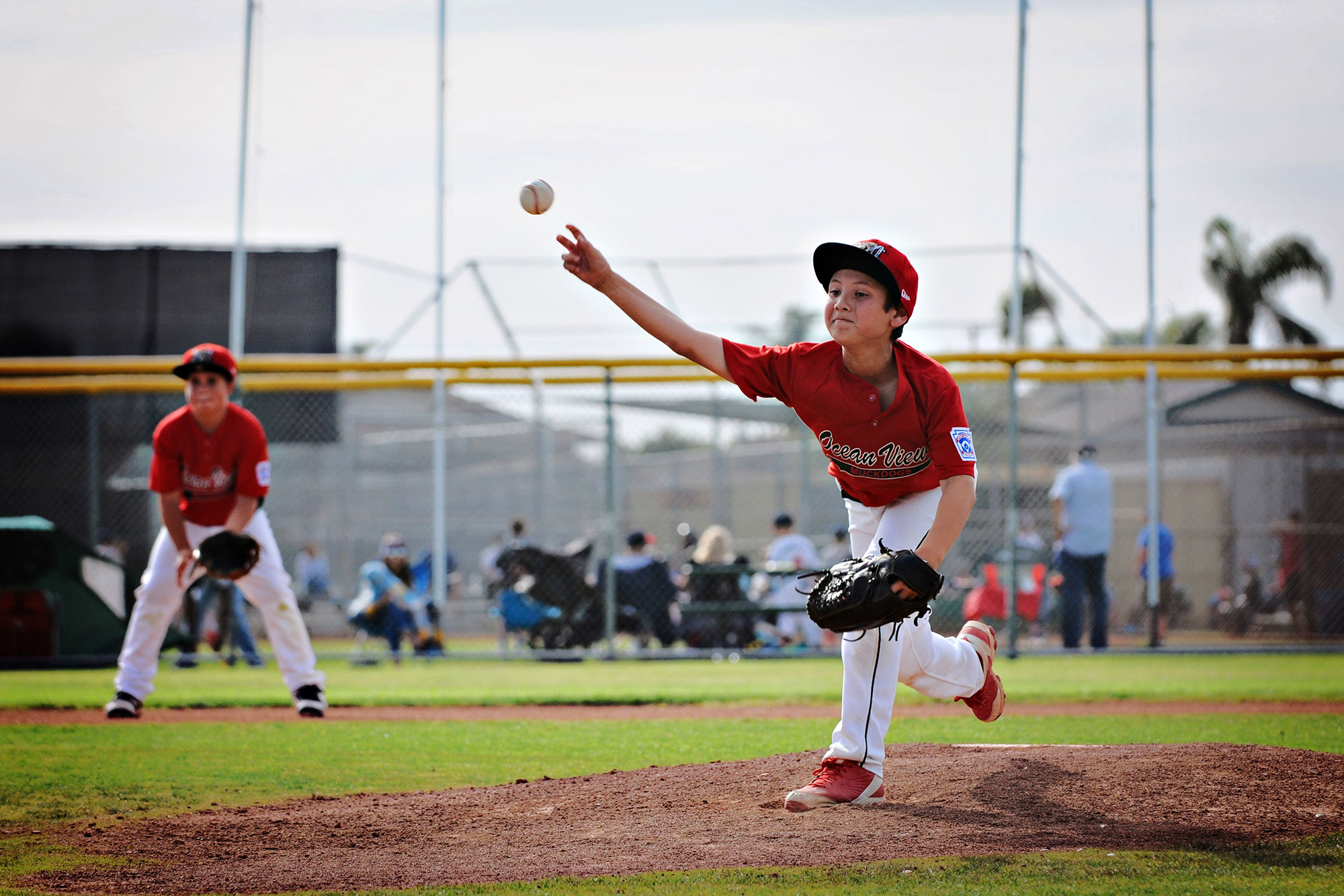As a parent, it’s natural to want your child to enjoy playing baseball as much as you do. However, some kids develop a fear of the sport that holds them back from participating. With patience and the right approach, you can help your child overcome anxieties and learn to love America’s pastime.
The key is to identify the root causes of their fear and gradually build up their comfort level at a pace they can handle.
Understand Where the Fear Comes From
The first step is understanding where your child’s baseball fear comes from. Here are some common causes:
- Performance Anxiety – Some kids worry about letting their teammates down or embarrassing themselves if they fail. Focus praise on effort over results, and remind them nobody’s perfect.
- Lack of Confidence – They may be intimidated by the skills involved, like hitting a pitch or catching a fly ball. Break skills down into small steps and celebrate incremental progress.
- Fear of Injury – Whether it’s a ball to the face or getting hit by a bat, injury is a real possibility. Ensure proper protective gear fits right and talk through worst case scenarios.
- Discomfort Being the Center of Attention – If your child is shy, the thought of all eyes on them when up to bat or in the field can be overwhelming. Emphasize the team aspect over individual plays.
- Intimidated by Size of Ball, Equipment & Field – From oversized gloves to a hard ball flying at them, the game’s physical elements can be daunting. Let them get comfortable through supervised practice sessions.
- Poor First Experience – A bad first impression, like getting hit by a pitch, can make the game seem scary. Help them work through it with positive reassociation.
Slowly Introduce Equipment and Skills
Rather than throwing your child into competitive games right away, help build their capabilities and confidence through a gradual introduction to baseball gear and activities.
- Get the Right Gear – Properly fitted gloves, batting helmets, catcher’s masks and other equipment will protect them while also making them look and feel like a real ballplayer.
- Play Catch – Starting with soft toss, you can work up to longer distances as your child gets comfortable gloving and throwing the ball. Keep it lighthearted.
- Hit off a Tee – Tee ball removes the pressure of hitting a moving pitch. Let them get used to connecting the bat with the ball and watching it carry.
- Soft Toss – Gently underhand tossing from close range lets them work on swing mechanics in a low-pressure way.
- Take Batting Practice – As your child finds their groove off the tee and soft toss, start lobbing easy pitches for them to hit in the cage. Go at their pace.
- Drills – Break down fielding, catching pop flies and other skills into individual drills for focused practice before expecting gameplay proficiency.
Cultivate Comfort and Confidence
As your child gets accustomed to using equipment and building baseball skills through practice, you can help them gain comfort and confidence to apply those abilities in games.
- Verbal Encouragement – Offer frequent and sincere praise about specific achievements to reinforce progress. Downplay mistakes.
- Focus on Process Over Outcomes – Remind them it’s about working hard and having fun, not performance statistics. Wins and losses don’t define them.
- Highlight Teamwork – Emphasize how every player contributes to the group effort of baseball. They’re part of a supportive team.
- Give It Time – Some kids warm up to competitive play faster than others. Be patient and let interest develop naturally rather than pushing too hard.
- Foster A Positive Environment – Keep practices and games upbeat. Encourage teammates to support one another. Make it enjoyable.
- Be Their Cheerleader – Lend your unconditional enthusiasm and support. Express how proud you are of their effort and courage.
- Lead By Example – If you demonstrate a calm, encouraging and fun-loving approach, your child will pick up on it. Be a role model.
- Embrace Coaching – Pairing your child with a solid coach can help them learn skills and gain confidence in a lower-pressure, peer to peer dynamic.
- Share Your Own Baseball Stories – Talk about your own early baseball experiences to reassure them fears and mistakes are normal but can be overcome.
Overcoming Setbacks and Challenges
Progress won’t always be linear. Setbacks like poor performances and baseball injuries may impact confidence levels. Here’s how to help them rebound.
- Talk It Out – Have empathetic discussions to understand where their head is at. Convey that setbacks happen to every player and can be bounced back from.
- Take A Break – Temporary burnout from constant practicing/playing can exacerbate fear and frustration. A short time away can recharge enthusiasm.
- Scale Things Back -If your child is feeling overwhelmed, dial practices back to a more manageable level of challenge until they regain composure.
- Provide Reassurance – Offer perspective by reminding them of previous successes, highlighting recent progress and expressing faith in their ability to work through it.
- Focus on Adjustments – Rather than reliving mistakes, talk through lessons learned and concrete skills/tactics to work on going forward.
- Seek Professional Help – For persisting fears, anxiety or loss of interest, it may be worthwhile consulting a sports psychologist or counselor.
- Consider Different Positions -If part of the issue is discomfort with a certain role like pitcher, explore switching positions to build back confidence.
- Don’t Give Up -With your support and patience, remember most baseball fears can be gradually overcome. Stick with it if it’s still something they want to do.
Make It Fun and Rewarding
At the end of the day, kids play baseball because it’s enjoyable. Keep things lighthearted and celebrate small victories.
- Prioritize Fun Over Competition – Don’t overemphasize wins/losses. Focus on smiles over stats. Keeping it light reduces performance anxiety.
- Customize Drills – Cater practices to things your child enjoys most rather than rigid skill drills. Fun builds enthusiasm.
- Throw in Games – Inject fun variants into batting practice like hitting whiffle balls or seeing who can hit buckets placed around the field.
- Focus on Snack Time – Make sure there are always tasty treats and refreshments available. Who doesn’t love sports fuel?
- Team Bonding – Foster camaraderie through pizza parties, spirit awards, inside jokes and other team bonding rituals.
- Reward Effort – Recognize hard work and sportsmanship with game tickets, ice cream socials, leadership roles and other pick-me-ups.
- Emphasize Improved Skills – Beyond the scoreboard, call out smaller achievements like catching grounders or better batting stance. Progress brings confidence.
- Add Some Silliness – Laughter conquers fear. Infuse practices and games with some goofy antics.
Make Protective Gear Your Friend
As a little leaguer, I remember dreading having to put on all that bulky protective equipment. The stiff gloves, clunky helmets and restrictive pads made me feel like a robot rather than a real ballplayer. I’d try to get away with flimsy shin guards and head out to the field barehanded if my coaches weren’t looking! Of course that led to some painful misjudged grounders to the shins and a few throws leaving my hand stingingly raw.
It wasn’t until college ball that I really learned to appreciate high quality protective gear tailored for comfort and maneuverability. Once I got the right lightweight batting helmet that fit snugly, batting gloves with flexible leather, and a catcher’s mask that didn’t fog up, it felt like I could move unencumbered while knowing vital body parts were shielded.
For kids, bulky generic “one size fits all” gear rented from the league can instill a resistance before they even step onto the field. Do some research and invest in equipment made specifically for their age group, size and position. Bring them with to pick out items in fun colors they’re drawn to. Having gear that fits right, moves with them and makes them look like a big leaguer goes a long way toward eagerness to suit up. Once they learn that going into battle with the right protective equipment is smart preparation, not a burden, they’ll gain confidence and shake those fears.
Embrace Mistakes as Learning Opportunities
When I was 10 years old, I had the chance to make the final out of a crucial playoff game by catching a popup. But I misjudged where it would land, got turned around, and saw it plop to the ground behind me. Their runners scored and we lost. I replayed that moment over and over, imagining how I could have moved correctly to secure the win.
It was a tough lesson, but really instilled the importance of learning from errors. The next season, during fly ball practice, I focused on reading trajectories, dialing in footwork, and locking eyes on the ball into my glove. When a similar popup came my way in the championship, I knew just how to track it down for the clinching out.
The reality is mistakes will happen often in baseball. While kids hate making errors, you can teach them these are opportunities to improve. I’d praise my son for alerting me when he knew what he did wrong, then we’d matter-of-factly discuss how to address it. Now he asks me to hit extra grounders to his weak side. Let your child know messing up is no big deal – it’s all part of the learning process.
Add Variety to Drills
In my early coaching days, I modeled practices after how I was trained: regimented stations repetition of the same basic drills. While the kids improved their skills, I noticed boredom setting in after a while. I realized regimented drills have diminishing returns if they sap a child’s engagement and enthusiasm.
These days I’m constantly mixing it up to keep their attention. We play fungo bingo in the outfield where they run to numbered spots I call out trying to fill a bingo card. During batting practice, they’ll yell out what props they want me to throw like beachballs, water balloons and rubber chickens. The delight on their faces tells me they’re learning without even realizing it.
My best advice is keep drills short and sweet, change up routines week to week, and make sure they’re having a blast. Not only will they eagerly run each drill again and again, the varied looks will broaden their skillsets. Creativity, engagement and laughter are your best coaching tools.

Celebrate Small Victories
When I played in college, homeruns, extra base hits and web gems were exciting. But professional baseball quickly taught me the value of “small ball” – things like moving runners over, drawing walks, avoiding double plays, and perfectly placed sacrifice bunts. The smaller achievements that subtly shift games.
After two seasons of pro ball grinding through slumps, I brought this perspective back to coaching youth. I praised a solid single to advance a runner, foul tips to work a count, backing up teammates, hustling on and off the field, and other tiny victories that build the bigger picture. When kids feel their contributions matter, they stay engaged rather than fearing failure.
So take note when your child makes good contact, fields cleanly, or reads the ball well even if the out isn’t made. Celebrate when they lay down a textbook bunt or perfectly execute a hit and run. Challenge them to catch a runner napping off base. All those little things add up to fearlessness, capability and confidence.
Final Thoughts
Baseball may appear intimidating at first, but with loving support most children can overcome those fears and learn to love the game. Have patience, meet your child where they’re at, and nurture their progress over time at a pace that builds confidence. If you convey unwavering belief in their capability and prioritize smiles over stats, their comfort level will grow. Your investment in helping them stick with baseball through the fears will pay off wonderfully when you get to watch your child thrive on the field.
Frequently Asked Questions
What are some common causes of a fear of baseball?
Common causes include performance anxiety, lack of confidence, fear of injury, discomfort with attention, intimidating equipment, and having a previous negative experience.
How can I gradually introduce baseball skills to my frightened child?
Start with proper safety gear, then slowly work up from playing catch to tee batting, soft toss, batting practice, and skill drills at their own pace.
How can I boost their comfort and confidence levels?
Verbal encouragement, emphasizing teamwork over outcomes, leading by example, enlisting a mentor, sharing your experience, and fostering a positive environment are all effective tactics.
What is the best way to handle setbacks with my child’s baseball progression?
Talk through frustrations, take breaks if needed, scale back to manageable levels of challenge, provide reassurance, focus on adjustments, consider new positions, seek professional help, and don’t give up.
What are some tips for keeping baseball fun and rewarding for my child?
Focus on fun over competition, customize drills to their interests, incorporate games, emphasize snack time, facilitate team bonding, reward efforts, call out smaller skill improvements, and infuse silliness into the experience.



